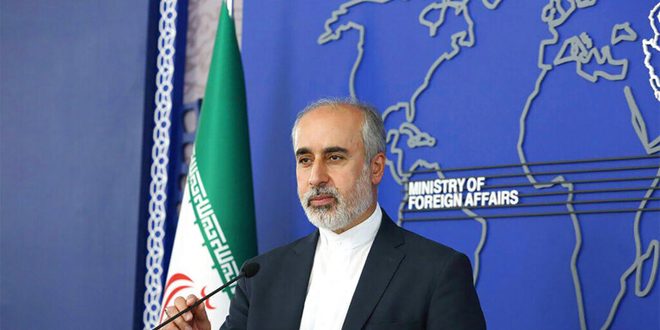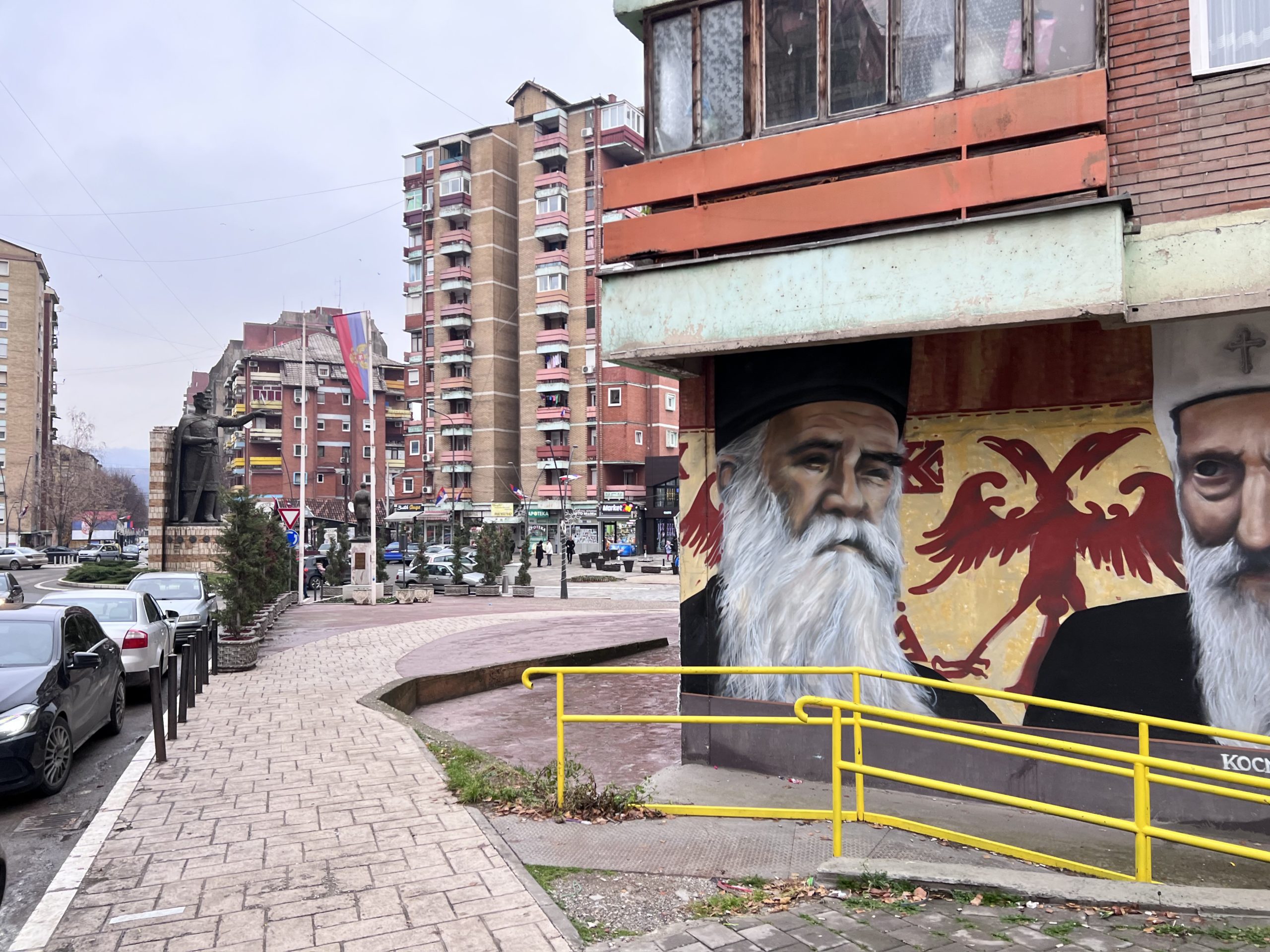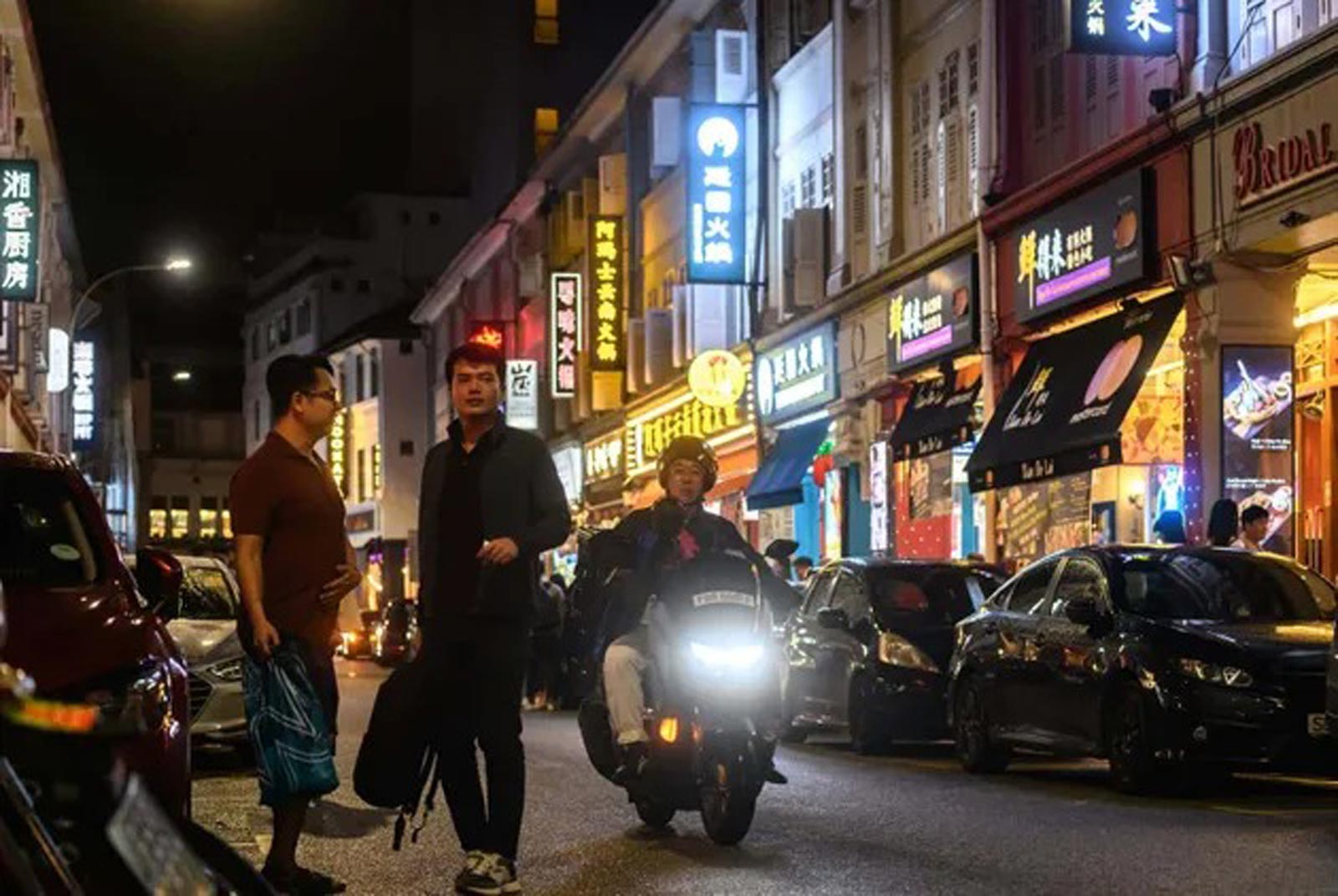Iranian protester left blind in one eye, faces barriers to come to Canada for help
By Negar Mojtahedi
Posted January 2, 2023

WATCH: Saman, an Iranian demonstrator, blinded in the eye with a rubber bullet speaks to Global News about his experience from an undisclosed location outside of Iran.
WARNING: Some readers may find the details in this story disturbing. Discretion is advised.

Saman, a 30-year-old Iranian national, has been left blind in one eye for the rest of his life.
“From a near distance, he shot at my face, and I lose my left eye forever,” he told Global News.
Saman, whose last name Global News is not revealing due to safety concerns, said on Oct. 1, 2022, an Islamic Republic security officer stood just 10 feet away from him, raised his gun and fired a rubber bullet, hitting his left eye.
He said the regime’s officer aimed at his face, recognizing him as one of the activists who had gone night after night to Vali Asr square in Tehran to protest against the Iranian government.
“I have damage from tooth and skull and brain,” he added.
Saman is one of the hundreds of victims to have suffered severe eye injuries by security forces since mid-September according to doctors in Iran.
Saman, who spoke over zoom from an undisclosed location outside Iran, said he drove himself to several hospitals while holding onto his mutilated eye.
He said most hospitals refused to treat him given the risks medics face treating demonstrators.
Finally, one doctor agreed to perform a quick surgery on him. He said a nurse told him authorities were searching for him and in just a few hours – he managed to escape. He left behind his life, family, home, and job.
READ MORE: Canadian doctors raise alarm as Iranian healthcare workers targeted by regime
Saman said he is now in hiding from the regime and his life is still in danger.
“They are tracking me everywhere and I think they want to kill me,” he said.
B.C. residents trying to help Saman
Saman’s story compelled Vancouver registered nurse Mahi Etminan with the BC Cancer Foundation and her brother Dr. Mahyar Etminan, who works at an Eye Care Centre, and UBC’s Deptment of Ophthalmology and Visual Sciences, Department of Medicine, to reach out and help.
Mahi also works with plastic surgeons who are willing to perform surgery for free on Saman.
She has been in contact with Saman daily on the phone and is determined to do anything she can to help him.
Mahi and Mahyar are trying to bring over Saman to Canada on humanitarian grounds but the application process has been difficult.
“For someone like Saman we can clearly see that there’s a lot of obstacles for him to be able to come to a safe place when his life is in danger and he has to change locations every day,” Mahi told Global News.
“I would like to ask our Immigration system what can we do for someone like Saman?”

Saman needs five sponsors but he needs to be approved first by the United Nations High Commissioner for Refugees (UNCHR) for sponsorship said Erica Olmstead, a Vancouver-based immigration lawyer at Edelmann & Co Law Offices.
“IF you don’t have that (UNHCR) it’s a full stop to the application no matter how sympathetic the circumstances,” Olmstead said.
Mahi and Saman said the problem, is that he would have to hand over his documents to get that UNHCR approval. Doing so could potentially expose his whereabouts to the Islamic Republic which is reportedly after him.
“If they go forward to the UN or country government it’s possible that information could get shared with the host country of Iran and it could put their life at risk. There are problems in the process where you’re requiring a person as part of this refugee resettlement application to get a document that is impossible for them to get,” Olmstead added.
She said that’s the threshold that must be met to even be considered eligible to be sponsored. The only other pathway, she added, is to link up to a sponsorship agreement holder who can sponsor people who haven’t been approved by the UNHCR, but those groups have caps on the number that be sponsored and require proof of sufficient funds for the first year to support the individual.

2:52 Huge crowds in B.C. rally against Islamic Republic
In October, Prime Minister Justin Trudeau joined the first Freedom Human Chain in support of demonstrators fighting for their freedoms in Iran. During the rally, Trudeau called the Islamic Republic a “brutal regime that does not represent the beautiful Iranian people, that does not represent the spirit of Iran.”
Dozens of Iranian-Canadians have expressed to Global News that they would appreciate the same policies made for Ukrainian refugees toward Iranians like Saman in need of a safe place.
In an email response, Immigration, Refugees and Citizenship Canada wrote: “The Government of Canada is deeply concerned about the people affected by the situation in Iran. We are actively monitoring the situation and engaging with our international partners to determine how Canada can best assist. When responding to international crises, there are often similarities in that people may be fleeing persecution of some sort, but the immigration response may differ.”
Olmstead said what the government did for Ukrainian refugees was exceptional.
“They actually made everyone eligible for a work permit to come here which was a very quick process to get them here on temporary status, two or three years,” she said. “No other refugee-producing country has been given any sort of program like that.”
The option for all other refugees, Olmstead added, is the Overseas Refugee Resettlement process which could take two to three years or more to process for the person to ultimately arrive in Canada. In Saman’s case, she said the federal government could grant a waiver based on the circumstances given the support Saman has in Canada.
Fundraiser for Saman
Time is not on Saman’s side.
His health, he said, is deteriorating with immediate medical care needed for his eye, which is getting smaller and needs an implant. The initial surgery he got in Iran, he said, was quick and only saved the anatomy of his eye.
Mahi said “we have been in contact with him. We’ve been trying to help him, my brother, and (me). My brother looked into ways to raise money for him both for his medical care and his legal fees.”
GoFundMe would not accept Saman’s case due to U.S. sanctions against Iranians, but a fundraiser site, GiveSendGo is accepting donations for Saman’s medical and legal fees.

5:44 Canadian lawyer on political sponsorships of Iranian political prisoners
Saman’s message
Saman said he dreams of going back to Iran but can’t for obvious reasons.
He wants people to know that what is happening in Iran is not a protest over the hijab but “a revolution. This is not a protest. We don’t need to edit the government system.”
Saman said the Islamic Republic is a threat to the world and would like his people to just have a normal life.
“Iranians are kind people. They deserve a real life. This is not a life. This is torture,” Saman said.
Two Iranian teens face death penalty over protests, says rights group

PARIS, Jan 3 — Two Iranian teenagers face the death penalty after being sentenced to be hanged over involvement in protests that have rocked the Islamic republic for months, a rights group said yesterday.
Two men aged 23 have already been executed over the protests sparked by the death of Mahsa Amini but campaigners fear dozens more risk being hanged as Iran uses capital punishment as an intimidation tactic in a bid to quell the protests.
Mehdi Mohammadifard, an 18-year-old protester, was sentenced to death on charges of setting alight a traffic police kiosk in the western town of Nowshahr in Mazandaran province, the Oslo-based Iran Human Rights (IHR) group said.
The death sentence was issued by a Revolutionary Court in the provincial capital of Sari after convicting him of the capital charges of “corruption on earth” and “enmity against God”, it added.
The double conviction means that he has been given two death sentences.
IHR director Mahmood Amiry-Moghaddam told AFP that based on available information, Mohammadifard appeared to be the youngest person yet sentenced to death over the protests.
Meanwhile, the judiciary’s Mizan Online news website said that the death sentence of another protester, Mohammad Boroghani, had been upheld in December by the supreme court on charges of “enmity against God”.
Boroghani is accused of “wounding a security personnel with a knife with the intent of killing him and sowing terror among citizens” as well as “setting ablaze the governor’s office in Pakdasht”, a city located 43 kilometres (27 miles) southeast of the capital Tehran.
According to IHR, he is aged 19. Mizan Online’s report came after some reports indicated the execution had been annulled.
“The Islamic republic, which has not been able to control the protests after 109 days, needs intimidation and execution to continue its survival,” said Amiry-Moghaddam.
IHR said last week that at least 100 protesters are at risk of execution after being sentenced to death or being charged with capital crimes.
The first hangings caused an international outcry and rights groups are calling for increased pressure on Iran to prevent more executions.
Majidreza Rahnavard, 23, was hanged in public on December 12 on charges of killing two members of the security forces with a knife.
Four days earlier, Mohsen Shekari, also 23, was executed for wounding a member of the security forces.
The judiciary says it has handed down a total of 11 death sentences in connection with the protests, which Iranian officials describe as “riots”.
The Supreme Court had in recent weeks ordered retrials for three protesters, including a Kurdish rapper, facing the death penalty for their alleged involvement in the demonstrations. — AFP
Iran Comments on Moscow Meeting: Why
Was It Not Present?
Iran says Russia, Turkey and Syria have recognized its role in the resolution of the conflict, according to Syria TV.

Iran commented on the meeting that took place in Moscow between Turkey, the Syrian regime and Russia, a few days ago, which did not go beyond the scope of officials of the three parties, according to official statements.
Iranian Foreign Ministry spokesman Nasser Kanaani said in a press briefing on Monday, in response to why Tehran was absent from the meeting: “Iran has always insisted on a political solution and not a military solution, and it insists on this position regarding Syria.”
“The countries of Syria, Russia and Turkey have recognized the crucial role of the Islamic Republic of Iran in fighting terrorism in Syria, supporting the government and people of the country, supporting the territorial integrity of this country and the process of resolving the Syrian crisis,” he added.
“These countries are aware of the importance of this role in completing the Syrian process.”
Tehran officials were not present at the “Moscow meeting”, which three days ago included the defense ministers of Turkey, Russia and the Syrian regime, and intelligence chiefs from the three countries.
This is indicated by the official version of Moscow, the Assad regime and Ankara, and according to Turkish Foreign Minister Mevlut Cavusoglu. It is scheduled to hold a second meeting in the second half of January, at the level of foreign ministers.
The meeting, which took place in Moscow, is seen as the second of a series of stations for a roadmap announced by Turkish President Erdogan in recent weeks to open dialogue with the Syrian regime– with Russian mediation.
The “map”, according to Erdogan’s previous words, is that “our intelligence organizations unite”, then “our defense ministers must meet”, and then “our foreign ministers meet”, culminating in the third station “meeting as leaders”, in reference to the President of the Syrian regime, Bashar al-Assad, and his Russian counterpart, Vladimir Putin.
Turkish Foreign Minister Mevlut Cavusoglu described the trilateral meeting as a “useful meeting.” Before that, the Turkish defense statement said it was held in a “constructive atmosphere,” as did Assad’s Defense Ministry, which added that it was “positive.”
Cavusoglu said on Thursday that “communication with the regime is important to reach a political solution for lasting peace and stability, and this participation is important in terms of reconciliation between the regime and the moderate opposition on the roadmap.”
He added on Saturday after he made contact with his Russian counterpart, Sergei Lavrov: “The date of the meeting with the Syrian regime at the foreign level may be in the second half of January and in a third country.”
Although it was expected and paved the way for many statements, the meeting, which brought together Ankara and Assad regime officials at the level of defense ministers, caused a state of “shock and anger” within the revolutionary street in Syria. It prompted the ignition of popular demonstrations that withdrew throughout the regions of northern Syria.
Hundreds took part in these demonstrations two days ago, in which protesters carried banners against the Assad regime and the steps and attempts to float it.
They also chanted slogans in which they stressed the constants of the Syrian revolution, stressing: “We will not reconcile with the regime. We will continue the revolution until it is overthrown.”
This article was translated and edited by The Syrian Observer. The Syrian Observer has not verified the content of this story. Responsibility for the information and views set out in this article lies entirely with the author.










